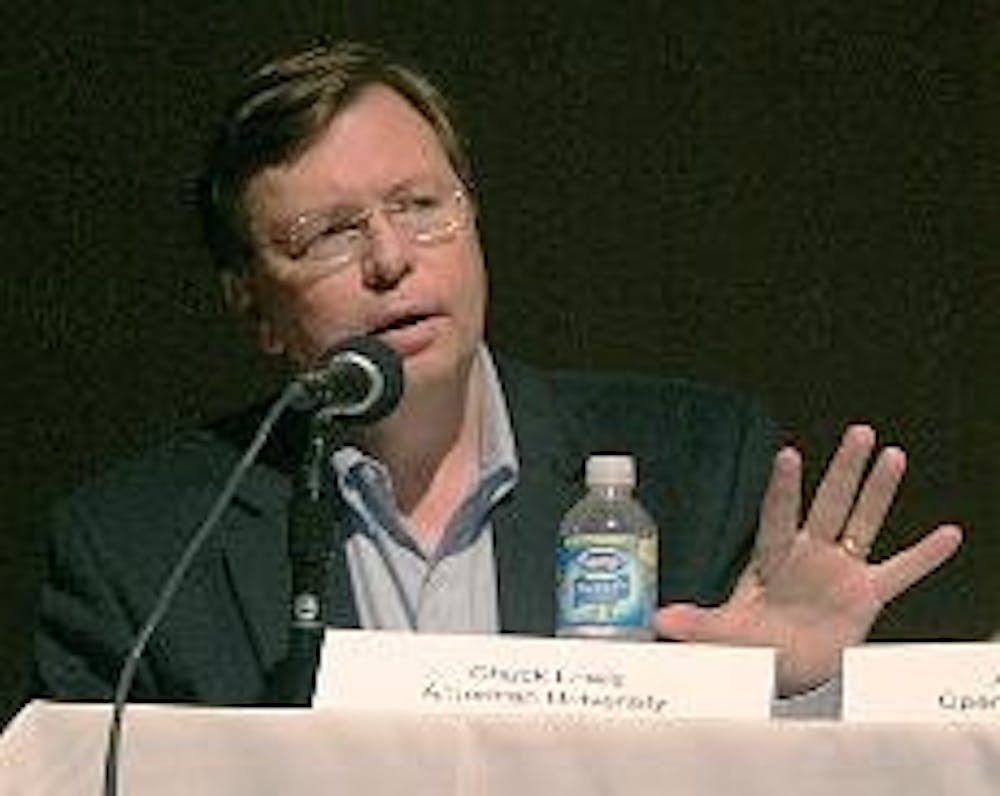Just when journalists thought the public couldn't get any more cynical about the media, citizens are now focusing on do-it-yourself journalism, said Pat Aufderheide, director of AU's Center for Social Media.
"The audience has simply refused to stay the audience," Aufderheide said.
Blogging, citizen journalism and its effect on the news media was discussed at a panel called "You Call This Journalism? The Emerging Landscape of News" in the Katzen Arts Center Thursday. Aufderheide moderated the discussion.
Citizens have new roles in the media as producers, experts and sources, said Jan Schaffer, executive director of J-Lab at the University of Maryland.
"I don't use the term 'citizen journalism' because a lot of what citizens are producing is content but may not be journalism," she said. "It may have some DNA of journalism."
Citizens don't think in terms of stories, they think in terms of information, Schaffer said. A lot of what they are doing on blogs is sharing information.
Michael Litz, a board member of OneWorld U.S., said his company is a forum for global civil society that is published in 11 languages.
"It's a chance to find the emerging stories," he said. "The good news stories are not always seen in our media. ... It's incredible how passionate people can feel about sanitation, for example, and they discuss that."
Citizens are already proving the importance of their presence in new media, said Charles Lewis, distinguished journalist-in-residence at AU and president of the Fund for Independence in Journalism.
"Citizens are already assisting with the coverage and getting things journalists can't get," he said.
Akwe Amosu, executive editor of AllAfrica.com, said people in Africa spend as much money getting online as they do on food.
"AllAfrica.com took back the space," Amosu said. "It was an amazing moment to be able to control some of the space" that publishes about Africa.
The majority of people using the Internet in Africa are not using it to blog, Amosu said. She said the hallmark of the Internet in Africa is the interdependence of citizen media and professional media.
Lewis said what is really interesting to him is the morphing of media taking place.
"I see the conventional media adapting as they continue to gut their internal application and economic systems under strain while the new media is trying to find their economic systems," Lewis said.
Alex Mensing, a freshman in the College of Arts and Sciences, said he found the panel fascinating.
"It's interesting to know where our information is coming from and how we get our information today as this new media develops," he said.





